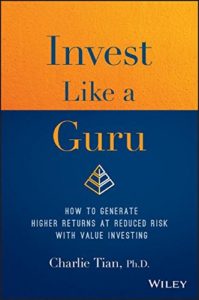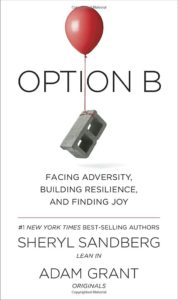Each month we like to round-up all of our book-related links. You can also check out the previous edition of this linkfest, or our latest monthly (April) post of the most popular books among Abnormal Returns readers. Remember anything you buy from Amazon through these links goes to support the site. Enjoy!
Review: Going Public: My Adventures Inside the SEC and How to Prevent the Next Devastating Crisis [by Norm Champ] is, above all, a timely reminder of the benefits of an expert regulator.” (WSJ)
Review: Money Machine: The Surprisingly Simple Power of Value Investing by Gary Smith whose “writing is clear and often clever.” (NYTimes)
Review: The Second Leg Down: Strategies for Profiting after a Market Sell-Off by Hari P. Krishnan is “useful not only to hedgers but even to speculative options traders.” (Reading the Markets)
Review: Charles R. Morris’ A Rabble of Dead Money: The Great Crash and the Global Depression: 1929-1939 is an “accessible and entertaining introduction to the subject.” (NYTimes)
Review: Gary Antonacci’s book Dual Momentum Investing: An Innovative Strategy for Higher Returns with Lower Risk is an “important book.” (Robot Wealth)
Review: Richard Bookstaber’s author of The End of Theory: Financial Crises, the Failure of Economics, and the Sweep of Human Interaction is a “worthwhile read.” (Reading the Markets)
Review: In Meir Statman’s Finance for Normal People: How Investors and Markets Behave “you will find great value in the book and learn many lessons.” (ETF)
Review: “If you’re new to value investing and want a fast-reading primer, Charlie Tian’s Invest Like a Guru: How to Generate Higher Returns at Reduced Risk with Value Investing is just the ticket.” (Reading the Markets)
Review: A Fifth edition of Michael Covel’s classic Trend Following: How to Make a Fortune in Bull, Bear, and Black Swan Markets was “definitely in order.” (Reading the Markets)
Endorsement: “If you’re new to value investing, I highly recommend Invest Like a Guru [by Charlie Tan].” (Charles Sizemore)
Excerpt: How big ideas (still) change the world from Rutger Bergman’s Utopia for Realists: How We Can Build the Ideal World. (Wired)
Endorsement: Mark Zupan’s Inside Job: How Government Insiders Subvert the Public Interest “is now the very best book on how special interest groups subvert the quality of public policy.” (Marginal Revolution)
Review: Letterman: The Last Giant of Late Night by Jason Zinoman has written a “book seems not one word too long and is probably the finest profile ever written of a TV comic.” (The Daily Beast)
Notes: Reduce don’t eliminate meat consumption. Thoughts on Brian Kateman’s The Reducetarian Solution: How the Surprisingly Simple Act of Reducing the Amount of Meat in Your Diet Can Transform Your Health and the Planet. (Wired)
List: Seven books to read this Summer including Option B: Facing Adversity, Building Resilience, and Finding Joy by Sheryl Sandberg and Adam Grant. (Heleo)
Review: “One is grateful to David Sax [author of The Revenge of Analog] the for mapping the eddies where we might, at least for a moment, find some stillness, respite, and fun.” (NYRB)
Excerpt: A battle against anxiety in On Edge: A Journey Through Anxiety by Andrea Petersen. (WSJ)
Review: Richard Ocejo’s Masters of Craft: Old Jobs in the new Urban Economy is a fascinating book, full of valuable observations and insights. (FT)
Endorsement: Dreaming of Beatles: The Love Story of One Band and the Whole World by Rob Sheffield is Tyler Cowen’s is “my favorite book so far this year…” (Marginal Revolution)
Q&A: Adam Grant co-author of Option B: Facing Adversity, Building Resilience, and Finding Joy talks resilience. (NYMag)
Q&A: How David Letterman changed late night with Jason Zinoman author of Letterman: The Last Giant of Late Night. (Slate)
Excerpt: Born Anxious: The Lifelong Impact of Early Life Adversity—and How to Break the Cycle by Daniel P. Keating on why early-life stress “gets under our skin.” (Scientific American)
Endorsement: Better Presentations: A Guide for Scholars, Researchers and Wonks by Jonathan Schwabish is “packed with practical advice. Strongly recommended.” (Tim Harford)
Notes: Robert M. Sapolsky’s Behave: The Biology of Humans at Our Best and Worst is “one of this year’s major social science books.” (Marginal Revolution)
List: Brad Feld’s top 5 books for entrepreneurs including Phil Knight’s Shoe Dog. (Medium)
List: 23 books that change Morgan Housel’s life including 30 Lessons for Living by Karl Pillemer. (Collaborative Fund)
Review: Steven Clifford’s The CEO Pay Machine: How It Trashes America and How to Stop It highlights the damage done by excessive executive pay. (Reading the Markets)
Don’t forget to check in with us on June 1st when we highlight the best-selling books on the site from May 2017.










